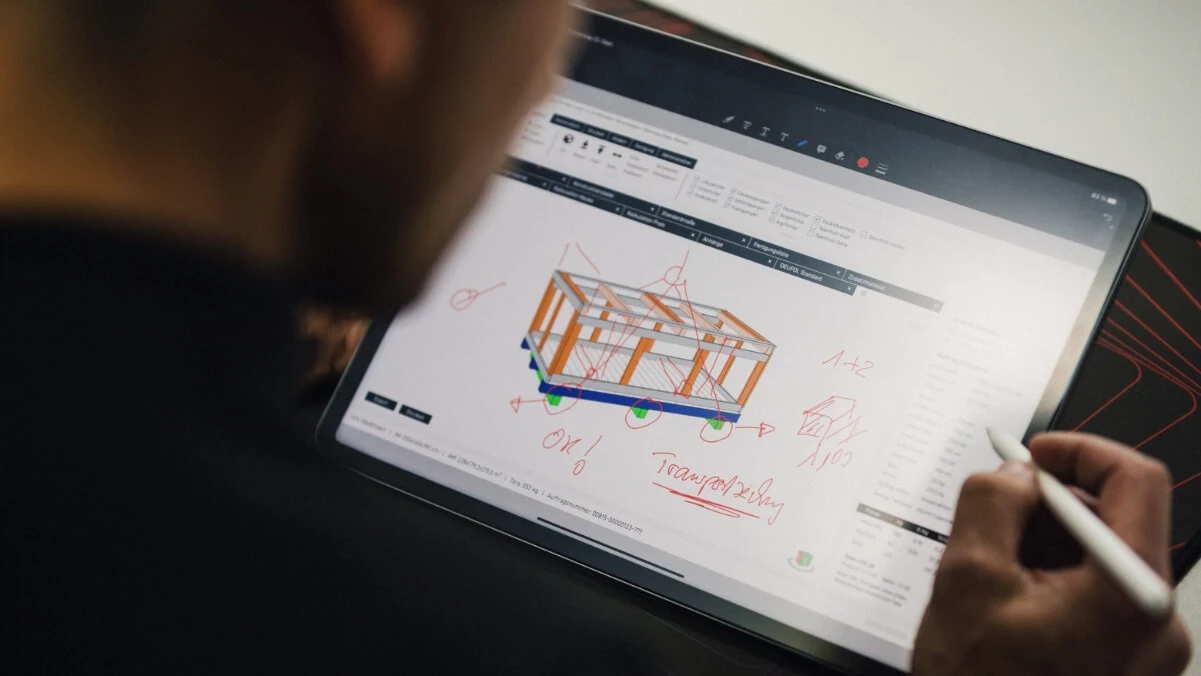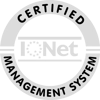In our increasingly connected and globalized world, the complexity of supply chains is steadily increasing, especially in 2023. Simultaneously, the topic of ‘sustainability in the supply chain’ is gaining more and more importance and continuously moving into the focus of corporate strategies. The pursuit of a supply chain that takes into account both ecological and social aspects while reducing negative impacts has become an essential part of responsible corporate governance and global logistics.
However, implementing sustainability in the supply chain is not a trivial endeavor. It requires strategic planning, sufficient resources, and a strong commitment to implementing the measures. In this article, we provide a guide with 7 efficient steps for designing a more sustainable and environmentally friendly supply chain.
We shed light on crucial aspects such as transparency, the use of modern technologies, and the minimization of environmental impacts. Join us on this journey and discover how your company too can contribute to sustainable supply chains.

1. Transparency in the supply chain for greater sustainability
The first step on the path to sustainable supply chain management is creating transparency. A comprehensive understanding of one’s own supply chain is indispensable to identify areas that need improvement. Where do the raw materials come from? Under what conditions are the products manufactured? Which transport routes are used?
It’s important to know who your suppliers are and what business practices they follow. Compliance with environmental standards and fair working conditions throughout the entire supply chain is a key point for sustainability. Companies that ensure and openly communicate these aspects build trust with their business partners and customers.
Digital solutions, like those offered by DEUFOL, for example, can help create the necessary transparency. They allow data to be captured, analyzed, and shared in real time, making all activities along the supply chain visible and measurable. These technologies help minimize risks, increase efficiency, and ultimately develop a more sustainable supply chain.
However, it’s important to emphasize that transparency alone is not sufficient to ensure a sustainable supply chain. Rather, it is the starting point from which further measures can be taken.

2. Ensuring compliance with sustainability standards
Ensuring compliance with sustainability standards is another key step in creating a sustainable supply chain. To achieve this, it is important to define clear expectations and standards for the entire supply chain. These should encompass both ecological aspects (e.g., environmental protection, minimization of CO₂ emissions) and social aspects (e.g., fair working conditions, compliance with labor standards).
These standards need to be clearly communicated and accepted by all involved suppliers and partners. Compliance with these standards should be verified through regular audits and reports. Companies can also strive for certifications that recognize and make their sustainability performance visible.
In this context, digital solutions also have a significant impact. With their help, companies can monitor their entire supply chain and ensure that the introduced standards are adhered to. They also assist in documentation and reporting, which is particularly important for compliance with legal regulations, such as the supply chain due diligence law.
It is important to understand that complying with sustainability standards is not only a legal requirement but can also provide a substantial business advantage. It strengthens stakeholder trust, improves market position, and can contribute to long-term economic success.

3. Promote collaboration with suppliers
In order to achieve a sustainable supply chain, collaboration with suppliers is crucial. Often, it is the suppliers who have a direct influence on working conditions and environmental impacts. Therefore, it’s important that companies view their suppliers not only as business partners but also as partners in sustainability.
Promoting sustainable practices often requires a change in existing ways of working. These changes can be a challenge for suppliers. However, companies can help by offering training, providing resources, and sharing best practices. Moreover, it’s important to maintain open channels of communication to discuss challenges and progress together.
Constructive collaboration with suppliers can contribute to achieving shared sustainability goals and make the entire supply chain more resilient. It creates a win-win situation where all parties benefit – the company, the suppliers, and ultimately also the environment and society.

4. Encourage sustainable innovations for sustainable supply chains
The promotion and implementation of sustainable innovations is another important step towards a sustainable supply chain. This involves both product and process innovations.
Product innovations refer to the development of products that consume fewer resources, last longer, or can be recycled. Process innovations, on the other hand, aim to improve the efficiency and sustainability of the supply chain. This can be achieved, for example, by optimizing logistics processes, reducing waste, or improving energy efficiency.
An example of such innovation is the use of artificial intelligence (AI) and other digital solutions to improve the supply chain. By utilizing these technologies, companies can optimize transport to save fuel and reduce emissions, or use real-time information to better predict demand and avoid overproduction.
But it’s not just about the use of digital technologies. Companies in the machinery and plant construction sector, for example, should also invest in product innovations in the field of industrial packaging to find more sustainable solutions. This includes the development of packaging from recycled or bio-based materials, reducing the amount of packaging, and improving packaging design to maximize efficiency during transport and storage.
It’s important that companies are open to innovations and willing to explore new paths. Sustainable innovations can contribute to minimizing environmental impacts while simultaneously strengthening the company’s competitiveness.

5. Continuous monitoring and reporting
To measure and ensure progress on the path to a sustainable supply chain, continuous monitoring and reporting is essential. Monitoring allows companies to identify problems and deviations at an early stage and take appropriate action. Furthermore, it provides valuable data that can be used for the continuous improvement of the supply chain.
In this context, Key Performance Indicators (KPIs) play a crucial role. They enable companies to measure progress quantitatively and assess their performance in relation to defined sustainability goals. This could be, for instance, the amount of reduced emissions, the percentage of renewable energy used, or the number of audits conducted with suppliers. Here at DEUFOL, we offer you various IT solutions to support you in the field of sustainability reporting.
Reporting is also an important component of sustainability management. It serves not only for internal control but also for communication with external stakeholders. By publishing sustainability reports, companies can create transparency and make their efforts in terms of sustainability visible. This strengthens the trust and image of the company and can thus also have a positive impact on business relationships.
Technology can also play a supportive role here. It can help to collect data efficiently, analyze it, and turn it into meaningful reports. In this way, performance in terms of sustainability can be precisely measured and communicated.

6. Putting the customer at the center
Customers play an increasingly significant role when it comes to sustainability. Businesses are increasingly informed and pay attention to the sustainability practices of their suppliers with whom they do business. Therefore, it is crucial that businesses understand and consider their customers’ expectations and needs regarding sustainability.
Companies can actively involve their customers in their sustainability efforts by providing them with transparent information about their supply chain and their sustainability performance. They can also offer products and services that make it easier for customers to make sustainable decisions.
It’s also important to take customers’ feedback seriously and incorporate it into the continuous improvement of the supply chain and the company’s sustainability performance. By listening and responding to customers, companies can not only strengthen their relationships with them but also gain valuable insights for their sustainability strategy.
It’s clear that a customer-centric approach to sustainability can lead to positive results. It strengthens customer loyalty, improves the image, and can also lead to increased demand. And ultimately, it can contribute to achieving the company’s sustainability goals.

7. Consistency and continuous improvement
The path to a sustainable supply chain is not a one-time project but a long-term commitment. It requires consistency and a will for continuous improvement. Sustainability is a dynamic target that requires constant efforts and adjustments.
Companies must be willing to regularly review and update their strategies and processes. They must be willing to learn from their mistakes and adapt to the constantly changing challenges. Only in this way can they ensure that they stay on the right path and achieve their sustainability goals.
It’s also important that companies integrate sustainability into all aspects of their business operations. It should not just be an additional project, but an integral part of the company culture and strategy. Employees at all levels should be involved in the sustainability efforts and receive the necessary resources and training to implement them.
Continuous improvement and consistency are the key to achieving a sustainable supply chain. They allow companies to continually improve their sustainability performance and adapt to changing requirements and expectations. It’s a long-term commitment that requires both patience and determination. But the efforts are worth it – for the company, for the environment, and for society.

Our DEUFOL conclusion
Sustainability in the supply chain is more than just a buzzword or a legal requirement – it is a necessity and an opportunity. With the right steps and a long-term commitment, companies can build a sustainable supply chain that not only protects the environment, but also promotes business success.
From involving suppliers to implementing sustainable practices and technologies, to engaging customers and choosing the right supply chain partner – there are many ways to improve sustainability in the supply chain. The key lies in continuous improvement and integrating sustainability into all aspects of business operations.
But despite all the efforts and progress, the journey to sustainability is never complete. It requires consistency, innovation, and the courage to venture new paths. Yet the benefits are undeniable – both in terms of the environment and business success.
Contact us now for a personal consultation
If you are interested in making your supply chain more sustainable and need support in this process, DEUFOL is the ideal partner for you. With years of experience and comprehensive expertise in providing sustainable packaging and digitally supported supply chain solutions, DEUFOL can help you shape your path to sustainability.
DEUFOL can assist you in making your supply chain more transparent and efficient, promoting sustainable innovations, and offering transparency and responsibility to your customers. With our solutions, you can achieve your sustainability goals while strengthening your competitiveness.
Contact us today for a personal consultation and discover how we can help you make your supply chain more sustainable. Your journey to sustainability begins here.




